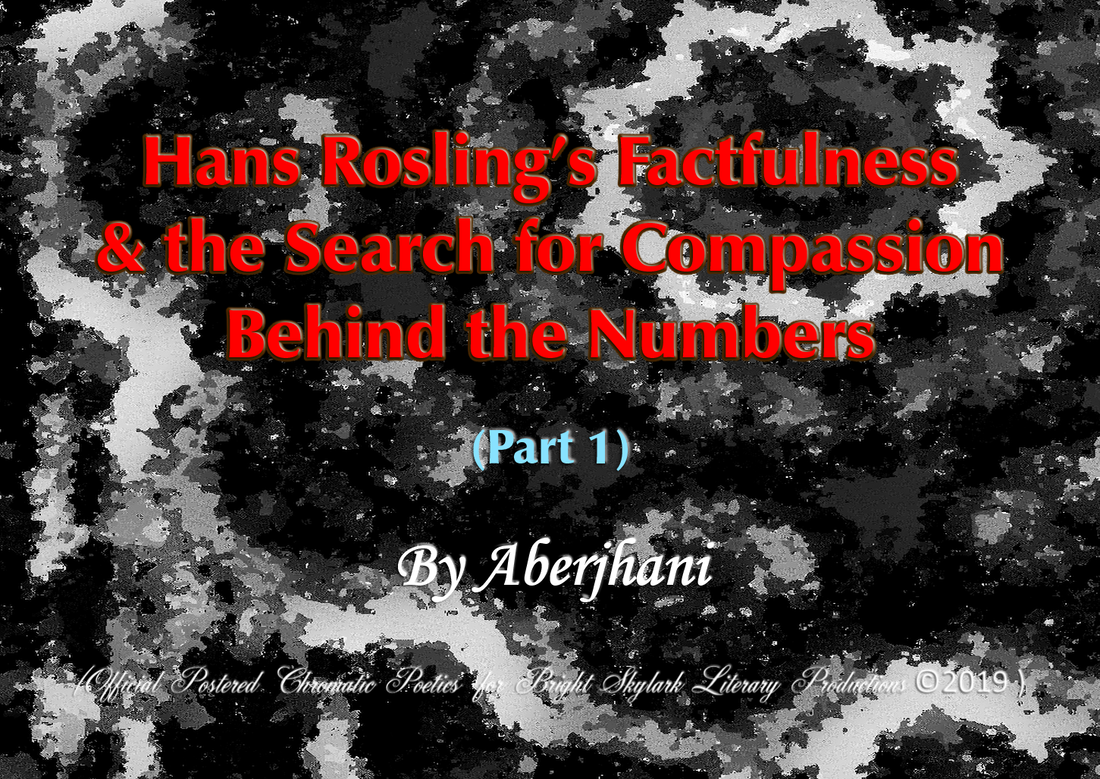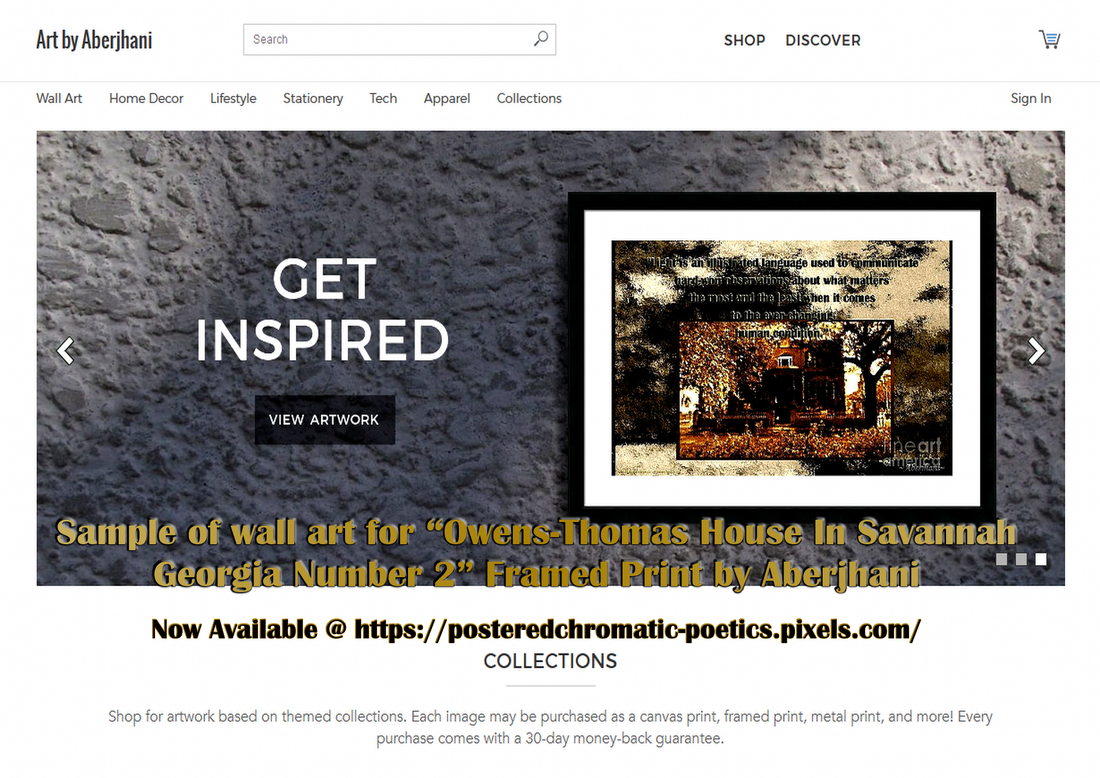|
The funny thing about my response to Hans Rosling’s brilliantly innovative book, Factfulness, is I purchased it while completing revisions of my own book: Dreams of the Immortal City Savannah. However, I then promptly set it aside until Dreams was in the hands of my publisher and well on its way to the printer.
Given Microsoft founder Bill Gates’s exceptional endorsement Factfulness (co-authored by Ola Rosling and Anna Rosling Rönnlund), there was little reason to doubt its examination of “Ten Reasons We’re Wrong About the World and Why Things Are Better Than You Think" was fully worth my committed attention. The cautiousness I felt stemmed mostly from concern the Factfulness in question might be overloaded with an excess of data and abstract theories while ignoring the intent behind my own work. The journalist in me always welcomes insightful research anchored by documented trends. The poet in me welcomes even more strategies and proposed solutions informed by compassion plus analytical insight. Therefore, acknowledging the hearts and souls that give often-referenced numbers their significance means a lot to me.
Developing a New Perspective
Doubt and apprehensiveness lingered throughout my reading of the first chapter on “The Gap Instinct.” I accepted easily enough Rosling’s proposal that for purposes of public discourse we should do away with the term “developing countries” and instead adopt language suitable for “sorting countries" into 4 income levels. Level 1 would be home to the most impoverished and Level 4 comfortably occupied by the wealthiest. Levels 2 and 3 could be considered the international middle classes.
Upon reading the following, the only thing I could do was smile: “Since you are reading this book, I’m pretty sure you live on Level 4” (p. 37). In fact, at this specific point in my life, I'm nowhere near it. But just by reading the book, it would seem, I at least possess Level 4 instincts, or qualities, and have adopted practices which may yet elevate my economic status.
Rosling’s notion, nevertheless, appealed to me. Factfulness essentially provides us with a framework and set of lens through which to view and assess the evolving realities of nations and individuals. Moreover, how could anyone not admire the depth to which the good doctor's reasoning was by informed by his many years of service to humanity? Given my passion for real-life historical literary heroes who, somehow, managed to beat the odds against them in order to produce compelling classic works, I had to admit he just might belong on the same level as those very heroes. He had, after all, devoted his final breaths to completing it.
Instinct & Realization
Going from one chapter to the next, Rosling points out how our worldviews may be distorted by 10 factors, or tendencies, categorized as follows: the Gap instinct, Negativity, Straight Line, Fear, Size, Generalization, Destiny, Single, Blame, and Urgency. What astonished me was how often he presented stories of himself giving in to these instincts. In one such account, by way of demonstrating the Fear Instinct, he mistakes a Swedish pilot for a potential Russian fighter pilot and almost needlessly destroys an expensive air force G-suit to treat him.
In another, illustrating the Urgency Instinct, he endorses a suggestion to prevent the spread of a contagious disease in Nacala, Mozambique, by setting up a military roadblock to prevent buses from entering the area. The result is one of unexpected deadly consequences. The unreserved humility with which this world-class educator and medical researcher shares his hard-won lessons is admirable. Although humanity's capacity for compassion IS not been included as a resource for making "things" better, and the word compassion does not appear in the index of Factfulness, the various elements of which is is comprises--like empathy, mindfulness, forgiveness--are evident enough.
Necessity & Recognition
The need to confront and learn from mistakes, combined with the compassion often required to accomplish precisely that, is a major theme which runs throughout the text and art of Dreams of the Immortal City Savannah. Some of the errors examined I considered my own. Some I did not. All required adapting to the demands of reevaluation and change.
The story "Trees Down Everywhere," for example, presents a meditation on the consequences of denying the realities of climate change. It further considers the necessity to exercise compassion not just for people currently suffering the consequences of it and for "future generations," but for the Earth itself. In addition: “The Bridge and the Monument: A Tale of Two Legacies” contrasts the racially-inclusive social vision of the late Dr. Abigail H. Jordan with the racially-oppressive politics of former Georgia (USA) governor Eugene Talmadge. (Included in the appendices are statements are statements on community efforts to change the name of the Eugene Talmadge Memorial Bridge spanning the Savannah River.)
The title story looks at how the horrors of human trafficking exemplified by America's historic Civil War continue to haunt world populations in 2019. It further suggests how exercising compassion and forgiveness toward an unexpected population segment impacted by the war could play a significant role in finally healing from it. Anyone questioning the relevance of such an observation need only recognize calls for reparations for the descendants of Blacks who toiled in slavery in America for centuries continue to increase as the 2020 election for the next U.S. president grows closer.
Other stories in Dreams, "Like A Brazilian Thanksgiving in Savannah" and "Savannah by the Twenty-first Century Numbers" look at ways a sense of compassion informs our approaches to such issues as immigration, caregiving, the historic impact of demographic shifts, dynamics of inter-generational interactions, and embracing diversity. NEXT: Hans Rosling’s Factfulness and the Search for Compassion Behind the Numbers Part 2 Aberjhani
0 Comments
Your comment will be posted after it is approved.
Leave a Reply. |
About the Author:A passionate reader, committed writer, artist, photographer, dedicated practitioner of mindfulness, hurricane survivor, maker of poems, believer in the value of compassion, historian, award-winner, journalist, adherent of beauty, and student of wisdom. Archives
January 2023
|


 RSS Feed
RSS Feed